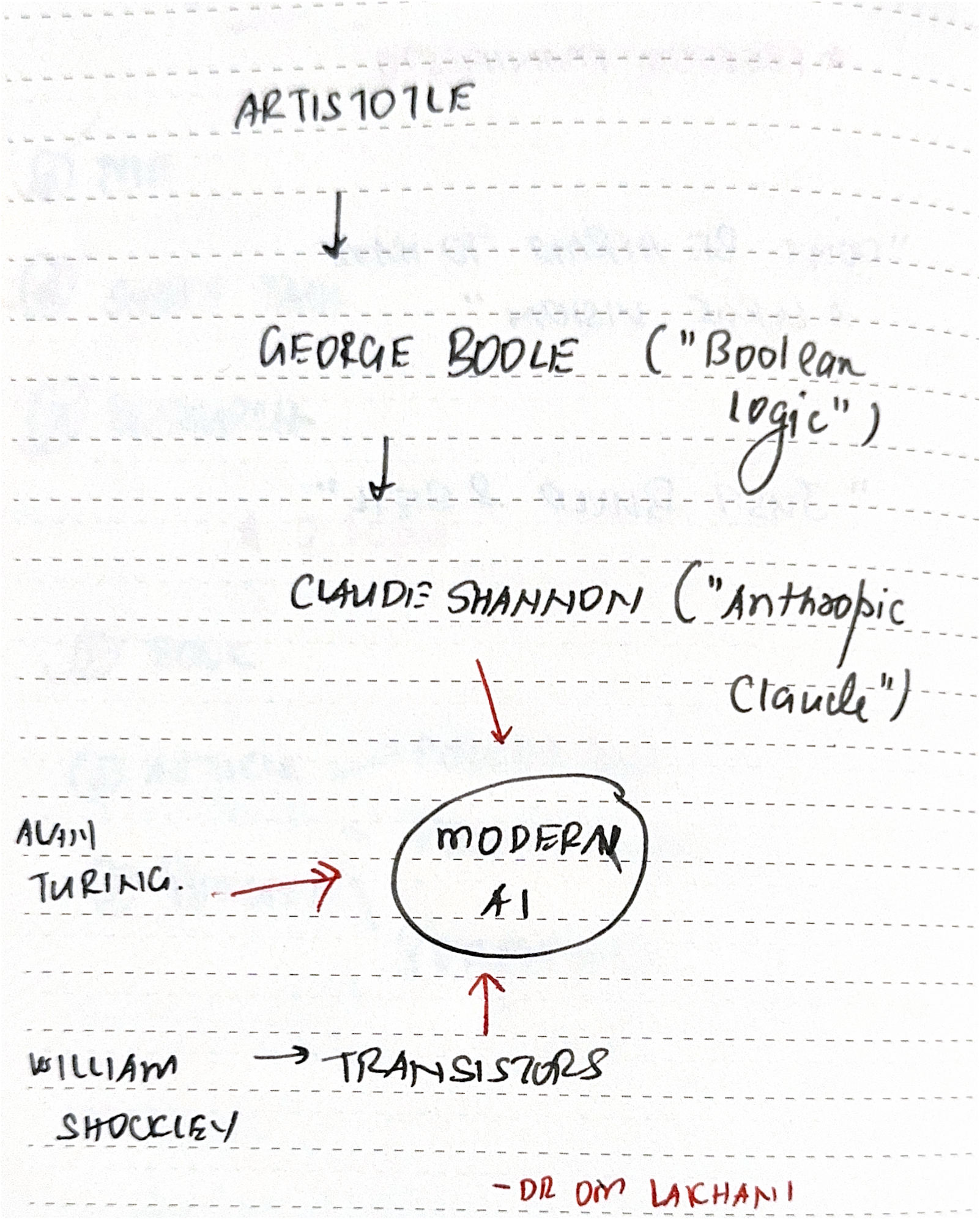How ancient philosophy led to modern day AI
Research by : Dr. Om J Lakhani
Edited by: ChatGPT 4o and Claude Sonnet 3.5
Based on original article by: Chris Dixon
How Ancient Philosophy Led to Modern Day AI
In the heart of ancient Athens, under the shade of olive trees, philosophers pondered fundamental questions about logic, knowledge, and human reasoning. Little did they know that their intellectual pursuits would lay the groundwork for one of humanity's most transformative innovations: artificial intelligence.
The journey from philosophical discourse to digital intelligence begins with Aristotle's systematic approach to logic. His syllogisms – structured forms of reasoning like the famous "Socrates is mortal" argument – represented the first attempt to codify human thought into precise patterns. This groundbreaking work would remain unchallenged for two millennia, serving as the intellectual foundation upon which later thinkers would build.
The nineteenth century marked a pivotal transformation of these ancient philosophical principles. George Boole, a self-taught mathematician, achieved something remarkable: he translated Aristotle's logical system into mathematical equations. This leap from philosophical concepts to mathematical expressions – now known as Boolean algebra – would prove revolutionary. It demonstrated that human reasoning could be reduced to mathematical operations, a revelation that would later become crucial for computing.
But the true alchemy occurred when Claude Shannon, nearly a century later, discovered that Boolean logic could guide the design of electrical circuits. This insight bridged the gap between abstract mathematical concepts and physical machinery. Suddenly, philosophical principles about truth and falsity could be represented by electrical switches being on or off – the binary system that underlies all modern computing.
Meanwhile, Alan Turing approached the question of computation from a different angle. While wrestling with a fundamental mathematical question known as the "decision problem," he conceived of a universal machine capable of performing any computation. This theoretical device, now known as the Turing machine, wasn't just a mathematical curiosity – it provided the conceptual blueprint for modern computers.
The convergence of these ideas during World War II catalyzed the development of practical computing machines. The urgent need to break enemy codes drove the creation of early computers, transforming theoretical possibilities into technological realities. These early machines, though primitive by today's standards, demonstrated that mechanical devices could perform complex logical operations, just as the ancient philosophers had done with their minds.
As computing evolved, a fascinating shift occurred. Early programming relied heavily on deductive logic – the same kind of reasoning Aristotle had systematized. Computers were given explicit rules and followed them precisely. But modern AI has embraced inductive logic, where machines learn patterns from data rather than following predetermined rules. This mirrors the human ability to learn from experience, something the ancient philosophers recognized as a fundamental aspect of intelligence.
Today's artificial intelligence systems, with their neural networks and deep learning algorithms, might seem far removed from the philosophical discussions of ancient Greece. Yet they represent the culmination of a long intellectual journey that began with fundamental questions about the nature of thought and reason. The machines that now recognize speech, analyze images, and even engage in conversation are built upon layers of ideas that stretch back to those first philosophical inquiries.
This evolution from philosophical principles to artificial intelligence reveals a profound truth: the ancient quest to understand human thought has led us to create new forms of intelligence. As AI continues to advance, it raises questions that would have fascinated those early philosophers – questions about the nature of intelligence, consciousness, and what it truly means to think. In this way, the dialogue between human and artificial intelligence becomes the latest chapter in a conversation that began millennia ago under those Athenian olive trees.

Source : https://getpocket.com/explore/item/how-aristotle-created-the-computer